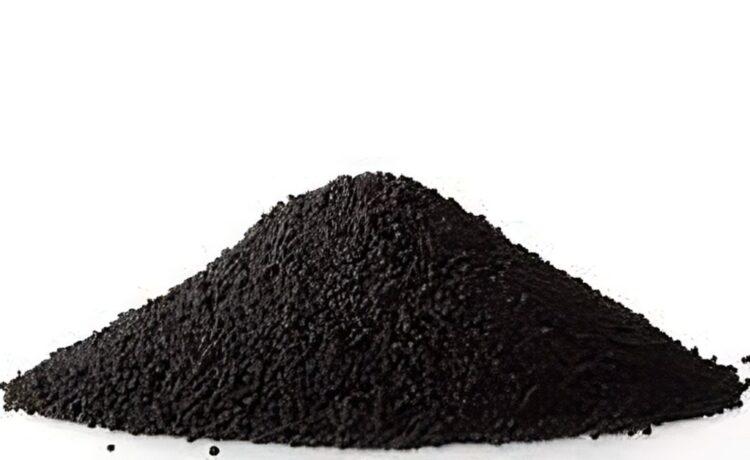With sustainability becoming an increasing priority, many consumers and companies are looking for eco-friendly options when purchasing tires. Tires made with sustainable materials and production methods are better for the environment. When choosing sustainable tire solutions, there are several factors to consider so you can identify the right tires for your needs. Here are some top tips for selecting the most sustainable and high-performing tire solutions.
- Look for tires made with recycled materials.
An important way to make tires more sustainable is to incorporate recycled and renewable materials into their production. In particular, many eco-friendly tires utilize carbon black ink from recycled tire rubber rather than virgin carbon black from fossil fuels. Using reclaimed carbon black reduces waste and avoids additional resource extraction. The recycled carbon black ink performs just as well as virgin carbon black in making durable tire treads. Beyond carbon black, recycled steel and other reused materials are commonly used in sustainable tire designs. Prioritizing tires made with post-consumer recycled content is an impactful way to minimize your environmental footprint.
- Consider fuel efficiency and performance.
An often overlooked sustainability benefit of tires is improved vehicle fuel efficiency. When selecting new tires, be sure to check the rolling resistance rating. Tires with low rolling resistance allow vehicles to use less fuel while driving. This saves money on gas and reduces greenhouse gas emissions associated with fuel combustion. State-of-the-art sustainable tire solutions are engineered for very low rolling resistance without compromising traction or handling. The right tires can provide both environmental benefits and driving performance.
- Look for reduced use of harmful chemicals.
Many common tire chemicals, like certain oils and vulcanizing agents, have negative health and environmental impacts. Greener tire manufacturing seeks to eliminate the use of hazardous chemicals wherever possible. Eco-friendly alternatives replace chemicals of concern while still allowing the production of safe, durable tires. Sustainable tire brands advertise their efforts to remove harmful substances from their manufacturing processes. Choosing tires made with greener chemicals reduces pollution and protects human and ecological health.
- Evaluate noise reduction capabilities.
An often overlooked tire attribute related to sustainability is noise reduction. Tire noise from vehicles has environmental impacts and affects quality of life. Fortunately, improvements in tire tread design and structure allow for quieter tires. Sustainable tire solutions use techniques like acoustic-absorbing foam inserts to dampen noise. Evaluating the decibel rating of different tire models can help identify options that minimize noise pollution. This supports communities’ health and well-being. Seeking out quieter, sustainable tires is a simple way to reduce environmental impacts.
- Prioritize Durable, Long-Lasting Construction
An important green quality for any product is durability and longevity. Tires made with recycled materials often match or even exceed the lifespan of conventional tires. Advanced sustainable tire designs emphasize robust construction with reinforced sidewalls, tread patterns that resist wearing down, and compounds that maintain integrity over tens of thousands of miles. Choosing tires built to last not only saves you money from less frequent replacement but also avoids the environmental impacts of manufacturing new tires before they are necessary. Don’t compromise on longevity; look for sustainable tires made for the long haul.
- Consider energy-efficient manufacturing processes.
To fully assess the sustainability of tire solutions, it is important to look beyond just the final product. The manufacturing processes used to create tires also have significant environmental footprints. Many leading sustainable tire brands use renewable energy sources like solar and wind to power their facilities. Efficient technologies like induction heating for more precise vulcanization lower energy usage. Choosing tire solutions from brands that prioritize green manufacturing processes contributes to reducing industrial environmental impacts.
- Evaluate End-of-Life Options
As with any product, it is important to consider what happens when tires reach the end of their usable lifespan. Sustainable tire manufacturers should provide recycling programs to keep used tires out of landfills. Conventional tire recycling often uses significant energy for shredding and processing. More advanced approaches, like pyrolysis recycling, can actually recover carbon black, steel, and other materials for reuse in new tires. Opting for tire solutions with effective end-of-life programs completes the sustainability lifecycle.
- Look for third-party sustainability certifications.
Reputable third-party environmental certifications help identify genuinely sustainable tire products. Respected certifications to look for include the USEPA SmartWay Verification for low rolling resistance and low emissions and the Forest Stewardship Council (FSC) certification for sustainable forestry-derived materials like latex. Green business standards like ISO 14001 provide assurance of responsible manufacturing practices. Trustworthy third-party labels offer credible confirmation of meaningful sustainability efforts.
- Prioritize Safety
In pursuing environmentally friendly tire solutions, product safety should remain a top priority. High-performance sustainability does not require compromising safety. Technologies like carbon black ink maintain the durability, traction, and control needed for safe tire performance. Search for tires that incorporate safety improvements such as groove bottom ridge designs or noise-suppressing foam that does not affect handling. With proper design, sustainability and safety can both be enhanced at the same time.
- Innovation in Sustainable Materials
With tire technology advancing, there are great innovations in sustainable materials coming up. For instance, studies are emerging on the use of renewable latex from guayule shrubs instead of petroleum-based materials. If tires are made using gum latex, then it would help eliminate dependence on fossil fuels. The tire sensor functionality may be enhanced by using recycled conductive carbon inks from electronics waste among manufacturers. The most modern material innovations can be monitored to reveal the next wave of sustainable tire solutions when they appear.
- Think of warranty and satisfaction guarantees.
Although this is a consideration in the upfront cost, bear in mind that what determines a tire’s value is its usable life. Considering the durability and fuel savings, most of these sustainable premium tires have a lower cost per mile than their conventional counterparts. Warranties that are all-inclusive and cover tread life and replacement periods free of charge after they expire, in addition to roadside assistance, offer the necessary assurance on quality performance.
In conclusion, the selection of the most Sustainabile Tire solutions for your requirements is easily doable. Search for recycled material consumption, sophisticated low-rolling resistance layouts, quieter tread patterns, and manufacture by brands committed to ecological accountability. Make safety, durability, and recycling at the end of life a priority. With the tips provided for identifying greener technologies, you can buy tires that save environmental resources while ensuring your transport needs are met. The right sustainable tire solutions are available, and by following these guidelines, you will be on the path to informed green decisions.











